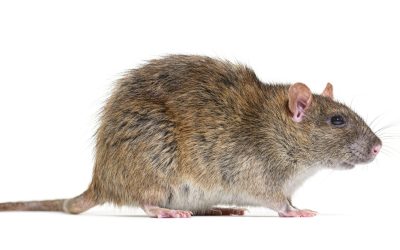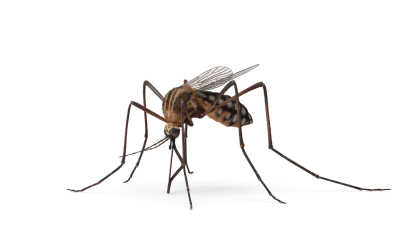Rodents have always been a nuisance for people. Not just because they leave droppings all around but also because they harbor several diseases that can seriously affect humans. From food poisoning to cancer, rodents can cause many health problems. To help you stay safe from these pests, read on to learn about the five disease types rodents carry. This will help you identify and take appropriate measures to keep yourself and your loved ones healthy.
Hanta Virus
This disease occurs in rats and is one of the most common diseases in humans worldwide. Also called Hantavirus, this ailment can infect those who inhale airborne particles from mouse droppings or urine. When the droppings or urine of an infected mouse dries out, the particles become airborne and may enter the human respiratory system.
Symptoms include fever, weakness, vomiting, coughing blood, and aching muscles, among others that are similar to other flu-like symptoms caused by viruses such as influenza. Other symptoms include diarrhea and sore throat, but people may also experience less common issues like chest pains, seizures, or irregular heartbeat.
Bordetella Disease
Also known as the Infectious Cough, this disease is present in dust or droppings from infected rodents. The primary culprits of contracting these diseases are common household pests such as squirrels and rats, but mice may also get into your house by climbing through small cracks in walls and doors. Once an animal sneaks inside your home, there is a high probability of disease transmission to humans via inhalation or exposure to rodent urine or droppings.
While humans can contract what is called Bordetella Pertussis, better known as whooping cough, from other infected humans, cattle can also get sick, in addition to pigs and rodents. However, dogs may be more resistant to infection than their domestic counterparts, with less likelihood of getting disease symptoms than birds pets like cats, guinea pigs, and hamsters which have been proved very vulnerable to contracting diseases.
Lassa Fever
This viral disease is caused by the rodent-borne Lassa virus and transmitted through direct contact with infected or contaminated urine, feces, nesting material, food items that have come in contact with an animal’s blood, and excretions.
While humans who contract this form of the disease fall ill due to consuming undercooked meat like chicken, which may contaminate fruits. The infection can also be passed to humans from handling or exposure to infected feces.
Common symptoms include high fever, headache, nausea, and severe lethargy that don’t get better with treatment.
People who have contracted Lassa Fever through direct contact tend to survive. Even though death may not be immediate, fatality rates are up in 15% of cases, especially among those over 60 years old.
Rat-Bite Fever
It is caused by contact with rodents infected with the two bacterial species: Streptobacillus moniliformis and Spirillum minus. Ingestion of food or water contaminated with rat droppings or urine can lead to rat-bite fever.
Rat-bite fever can lead to severe disease and even death if not detected and treated on time.
Symptoms include vomiting, fever, joint pains, muscle pains, or abdominal cramps anywhere between 3 and 10 days after consuming contaminated food. Red rashes may appear on hands and feet within two to three days of fever.
Tularemia
Known as Rabbit fever, Tularemia is a bacterial disease caused by Francisella tularensis. It can cause severe illness in humans after being exposed to the organism through body fluids or tissues of infected animals.
It is most often transmitted through direct contact with infected rabbits or deer, and the disease is typically fatal if not detected early on. Tularemia can be transmitted in several ways by those exposed. These include vaccines, meat, seafood preparation or clean-up, and contact with infected rodents.
Typical signs/symptoms are flu-like illness followed by severe pneumonia (a high fever, chills, headache). Infection may also cause skin inflammation, which manifests into painful boils on the legs. Swelling around the neck or lymph nodes is also noted on some occasions.
Late signs are severe joint pains that make the patient unable to walk. In later stages, blood clots caused by overstimulation of the immune system in affected animals can cause fatal inflammation. The bacteria can spread when an infected animal is eaten by another animal, especially other wild rodents.
Rodents can spread a wide variety of diseases, some deadly to humans. Being aware of the diseases rodents carry, you can take steps to protect yourself and your loved ones. Practice general hygiene and keep an eye out for rodent infestation in your home or office.
If you find rat droppings or urine where food is being stored, it is crucial to clean the area and remove all traces of evidence before anyone eats any of the food. If a rat bites you, immediately seek medical attention. If you suspect rodent infestation on your property, do not hesitate to a professional pest control service.





0 Comments